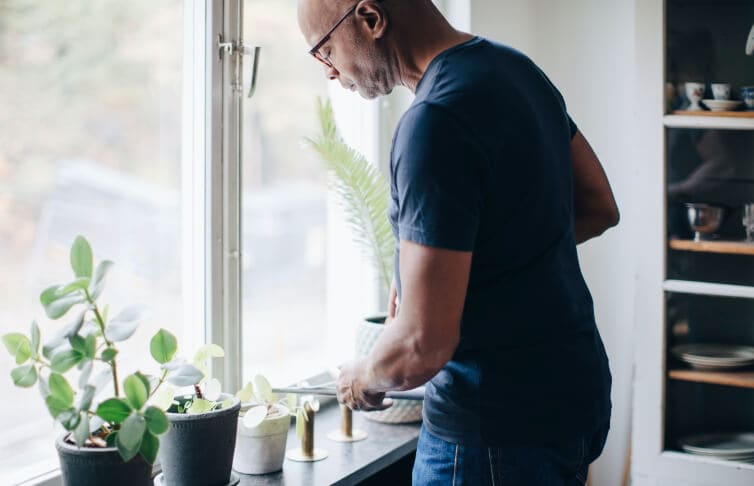This content was produced for the foundry @ Meredith Corp. Health editorial staff was not involved in its creation or production.
horizons
Find Your New Normal
How to get back to being you after treatment ends.
The end of lung cancer treatment can bring joy and relief. But the transition back to your old life may pose challenges. It takes time and reflection to re-acclimate to normalcy after cancer—but with patience, you can find your new normal.
CONTROL WHAT YOU CAN; TRY TO LET THE REST GO
The fear and worry that you felt during treatment may not disappear right away. You can help your mind get used to the idea of post-treatment by focusing on the things you can control. Talk to your doctor to make sure you understand what types of symptoms you should be aware of. Work to understand any follow-up care you may need, and keep track of how frequently you need it.
OWN YOUR EMOTIONS
A positive attitude may make it easier to get through hard times—but it’s also important to acknowledge difficult feelings. If you feel anxious, fearful, or sad, it can help to allow space for that emotion and try to discover why it’s there. Once you’ve acknowledged your feeling, you can concentrate on figuring out how you can deal with it. Consider meeting with a therapist or counselor to work through any lingering feelings around your diagnosis, treatment and recovery.

SEEK SUPPORT IF YOU NEED IT
You had a health care team, friends, and family to help you during treatment. You can draw on your community after your treatment ends, too. Look to friends and family for emotional support. Other cancer survivors can offer an especially useful perspective because they know where you’re coming from. You might also look for comfort through spiritual support or counseling.
COMMIT TO BEING HEALTHY
Staying healthy may help speed up your recovery and is good for your mood. Many of the keys for building and maintaining healthy habits are the same for cancer survivors as for everybody else: Get regular exercise, try to sleep at least eight hours a night, and eat a balanced diet.




